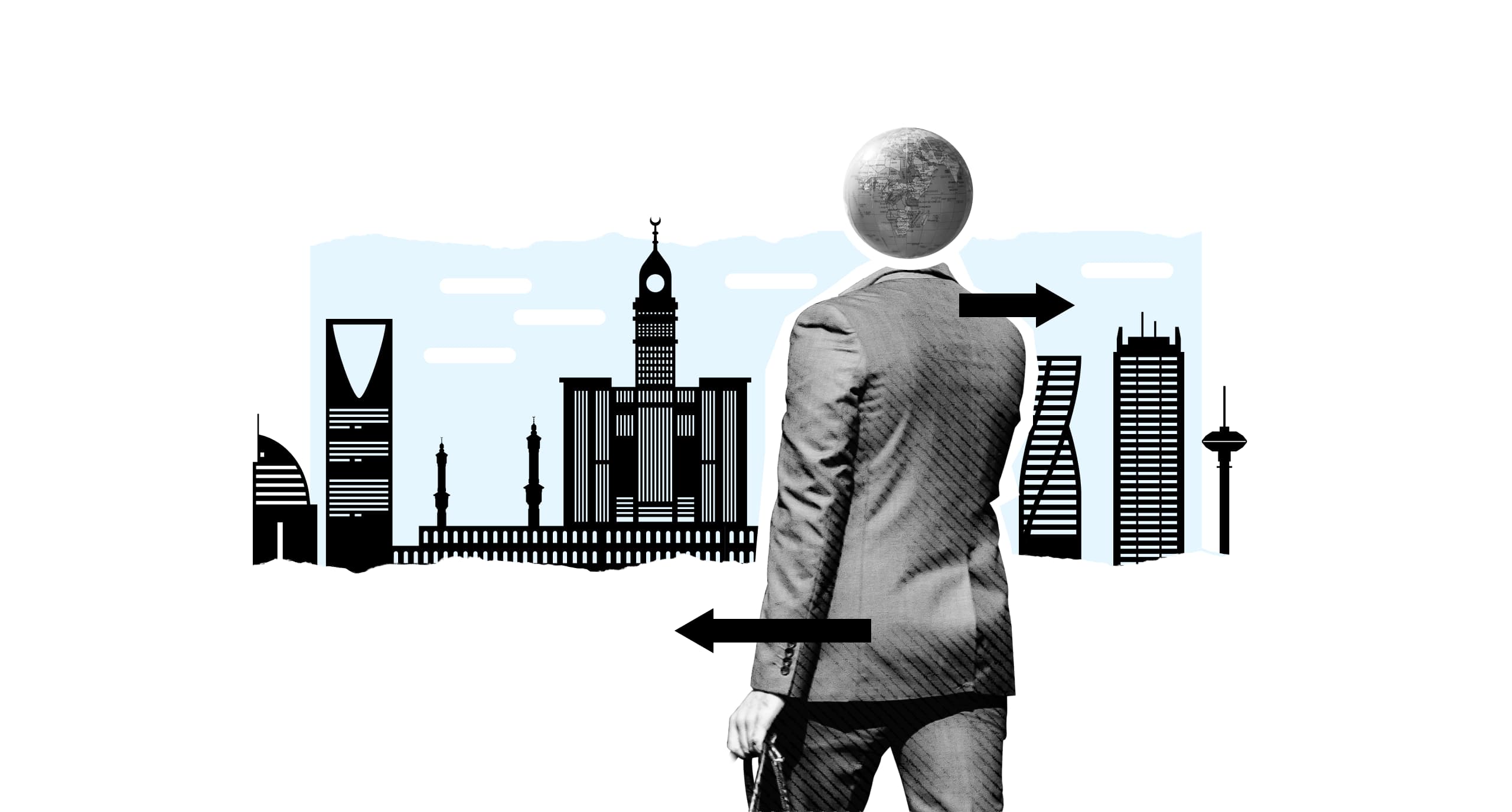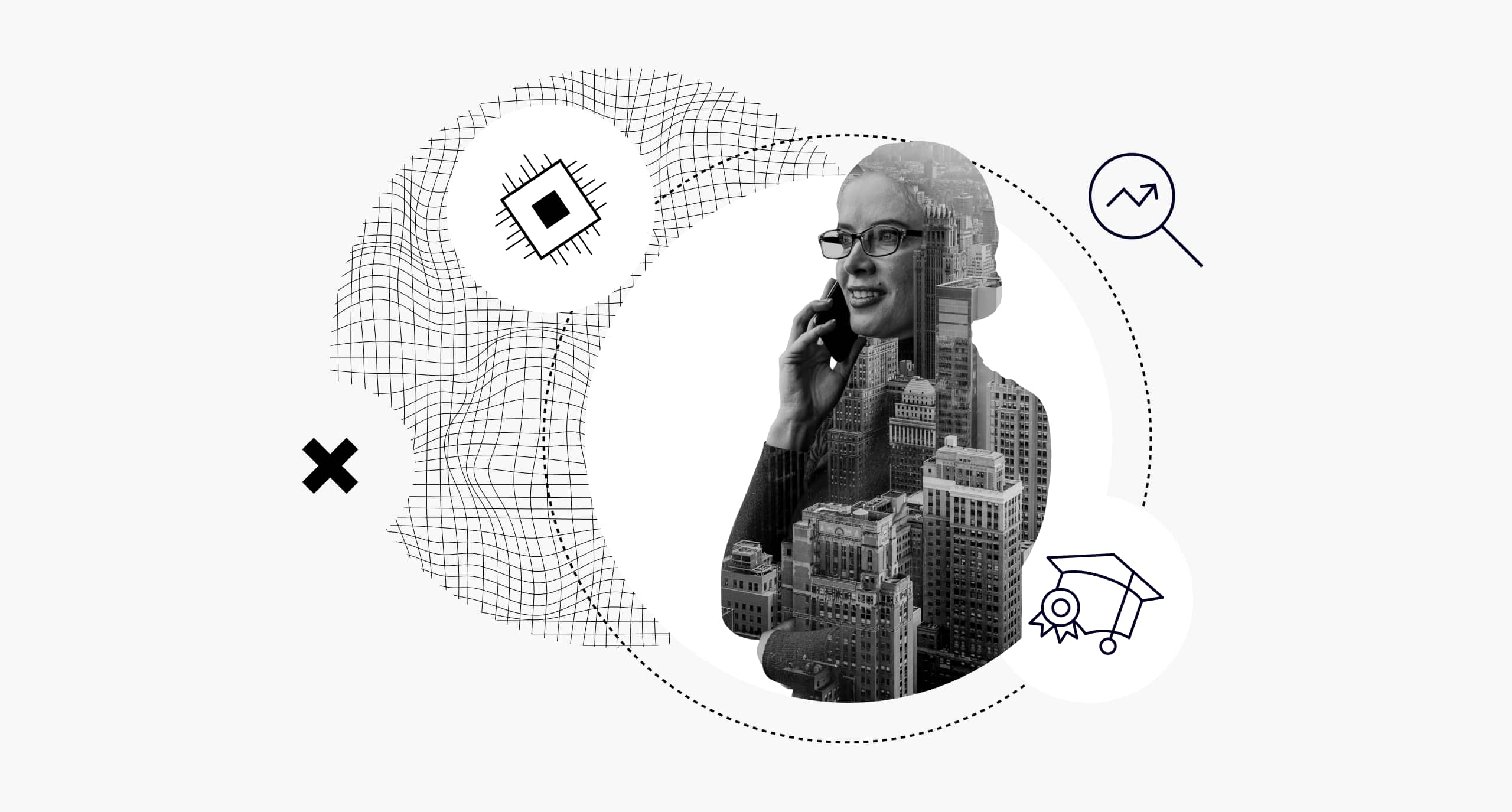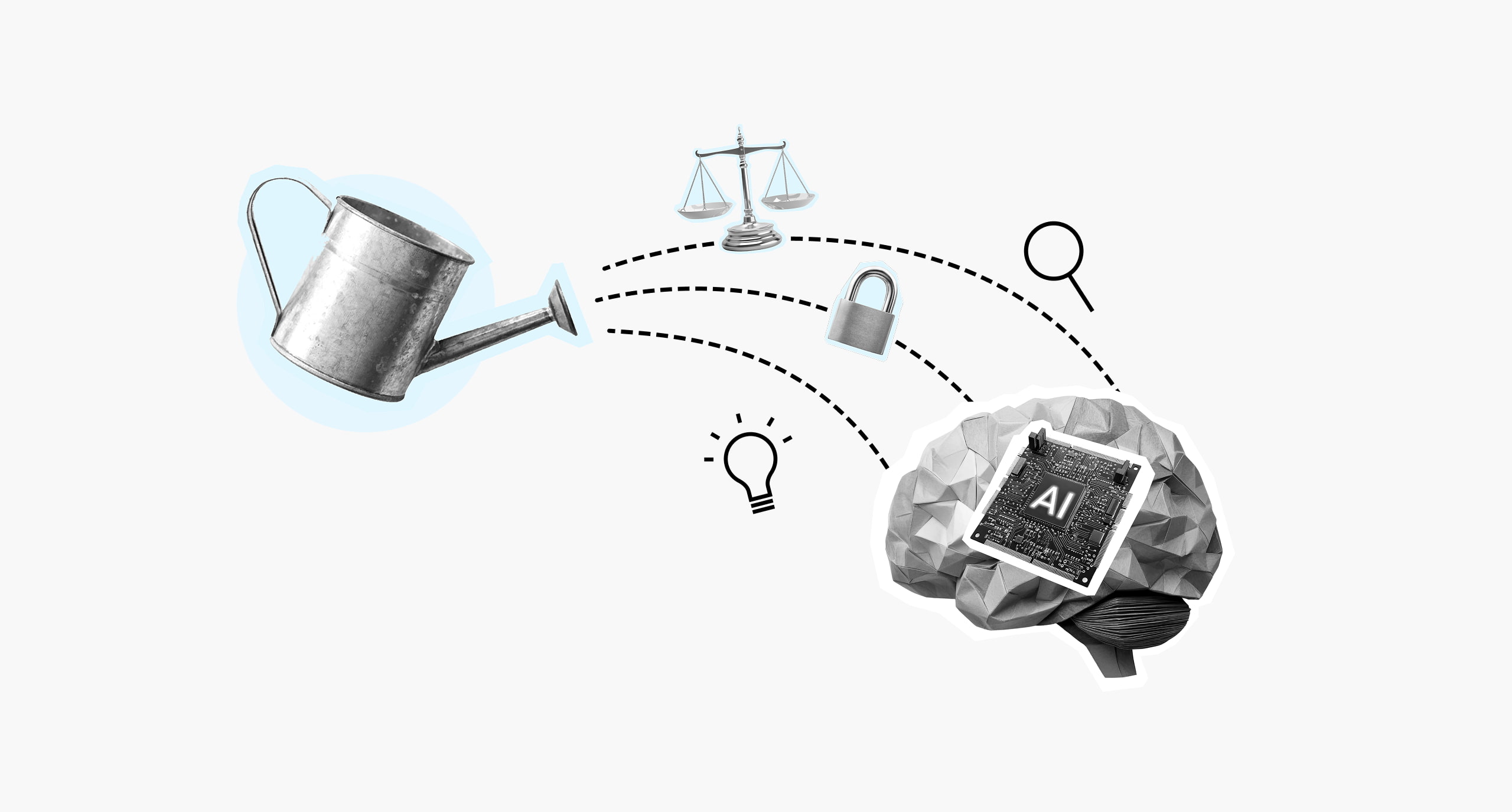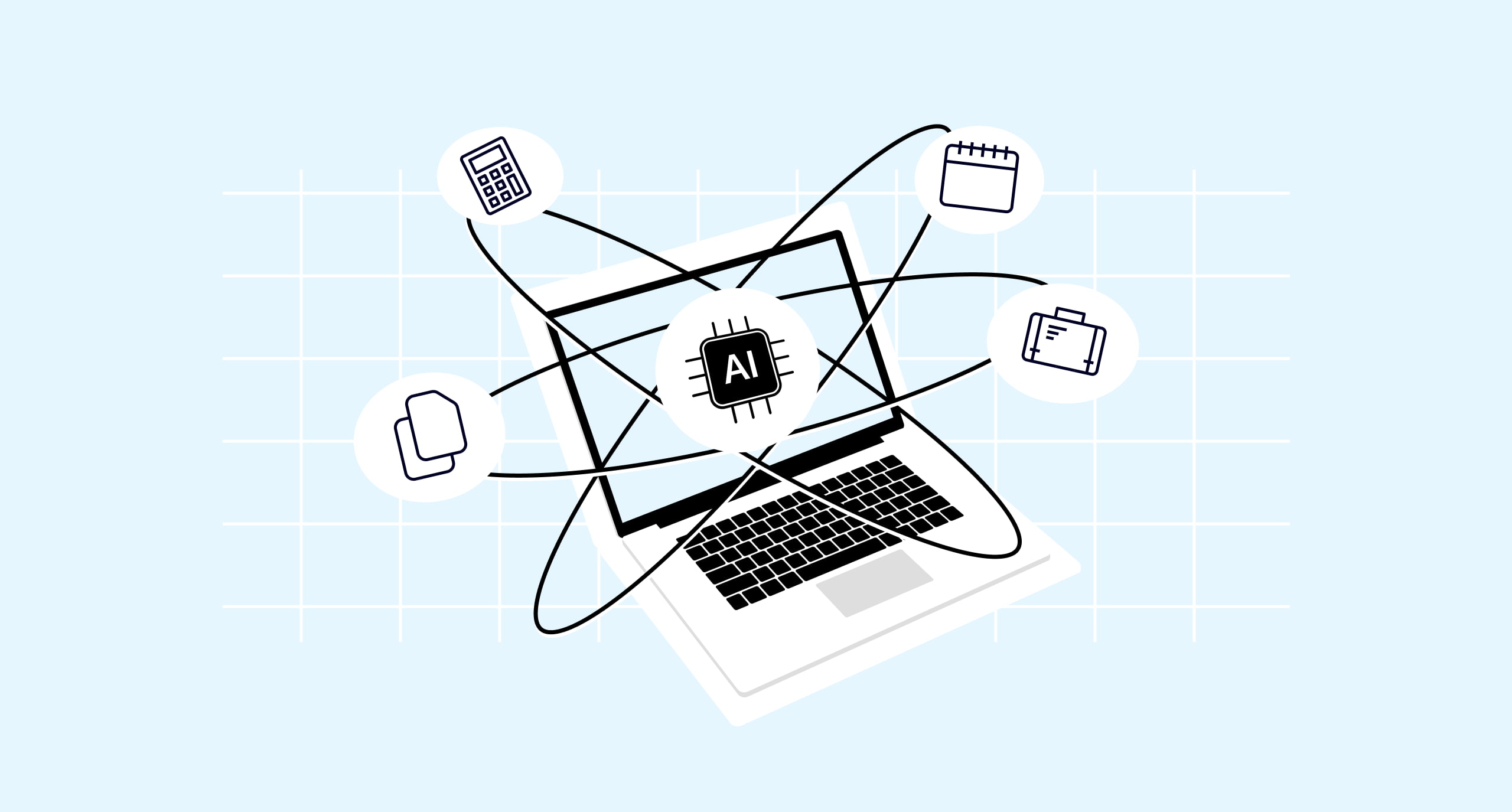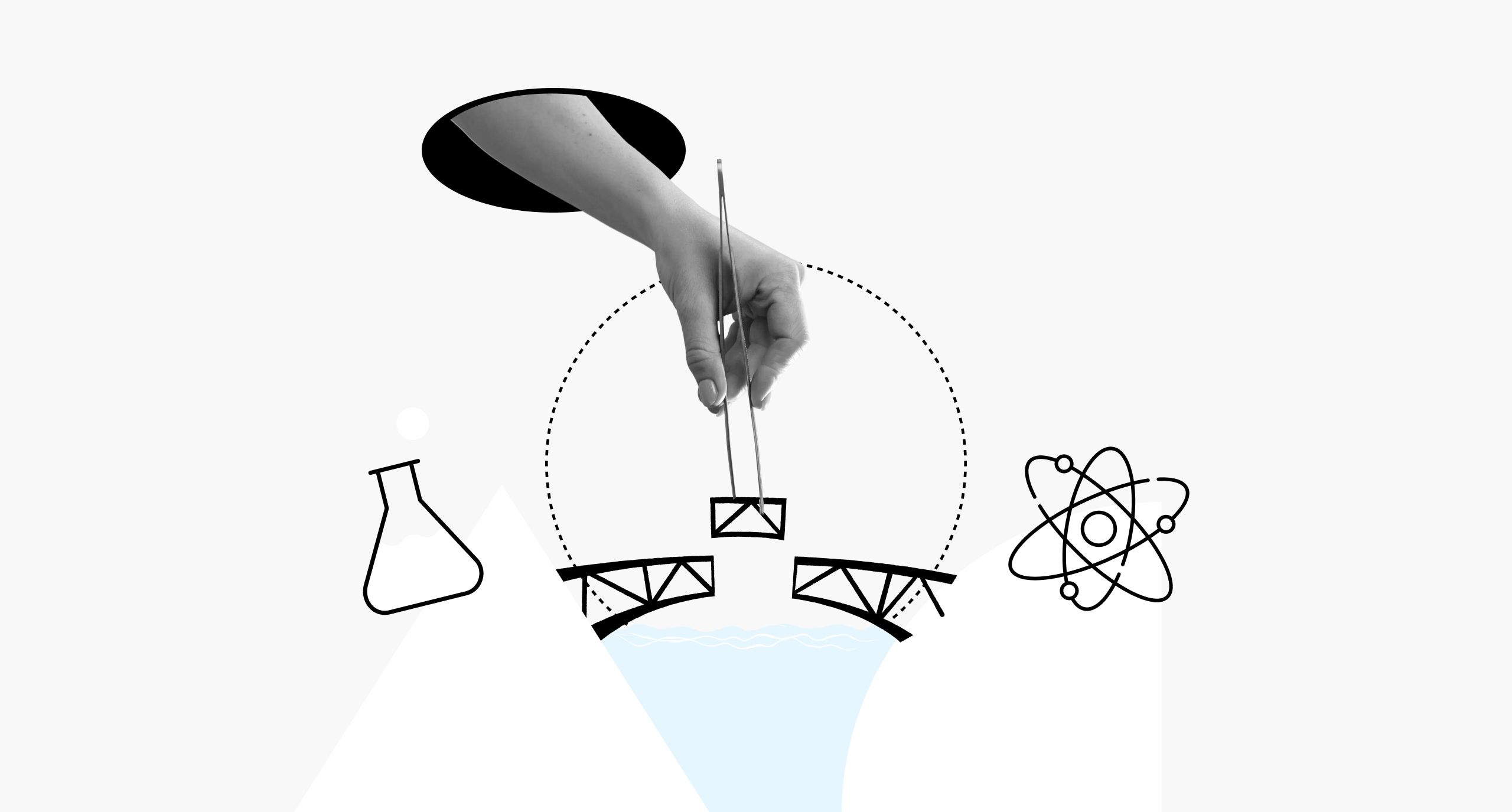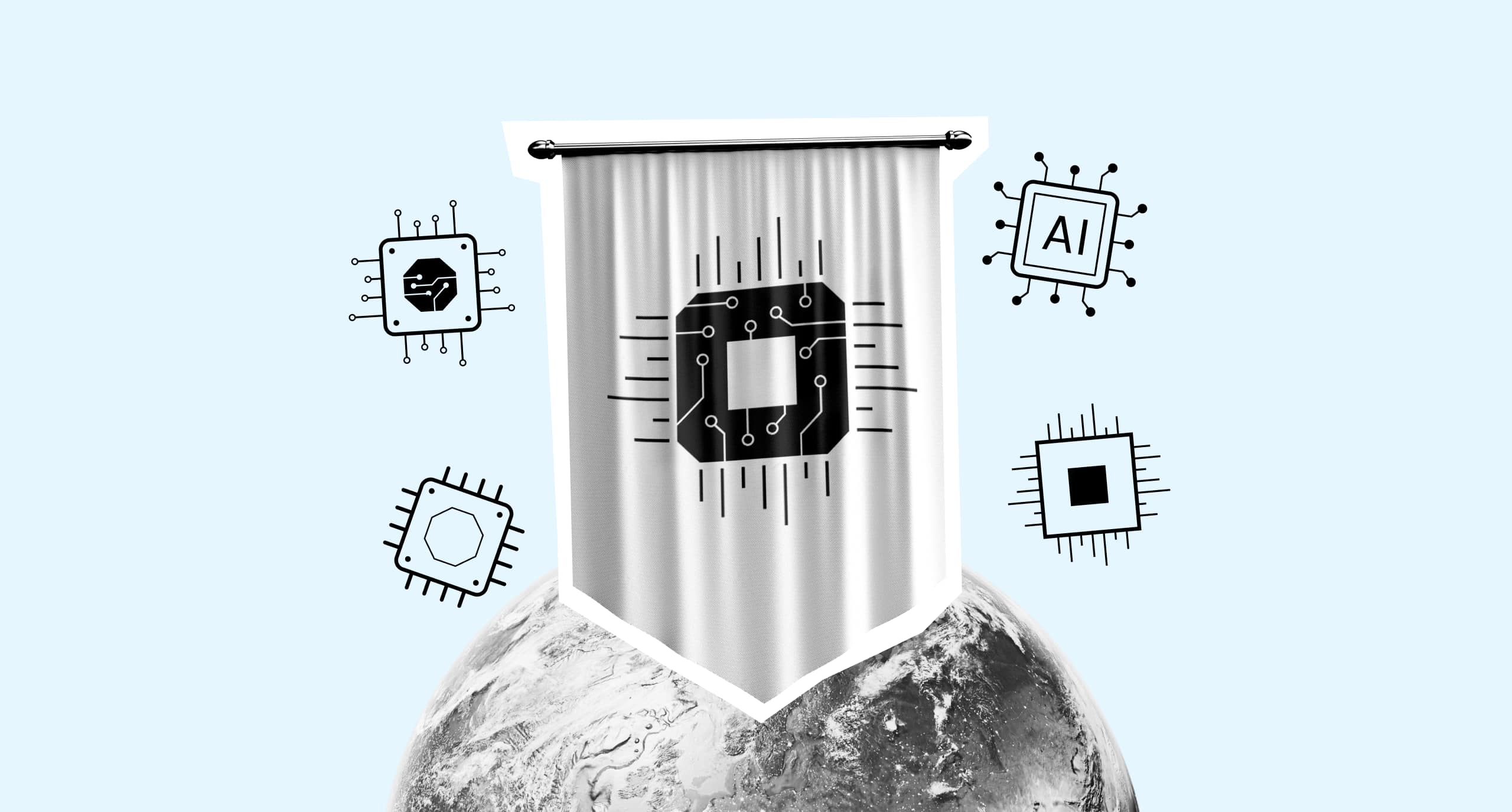“I’ve always been curious,” says French entrepreneur Tanguy Audouin, founder and CEO of Glydz. “Even as a kid, I was inventing things. Once, I tried to make a pulley system from the laundry room to the third floor so my parents wouldn’t have to carry wet clothes upstairs. It never worked – but I learned something.”
That mix of imagination and persistence never left. By 17, Tanguy was already running a small phone-repair business from his home in Normandy, learning firsthand how to build trust with customers, manage orders, and turn frustration into opportunity. “I broke my phone, fixed it, then fixed others. Suddenly it became a business.” The work wasn’t glamorous, but it taught him the principles of entrepreneurship.
Today, those lessons guide “Glydz”: a startup born between Paris and Madrid with the goal of making mobility effortless. The product? Electric soles that fit on your shoes and let you glide through the city.
Let’s find out more about the journey from this Master in Management graduate.
What is Glydz, and how did it start?
“I’d been developing electric skateboards for ten years,” Tanguy explains. “They were amazing to ride, but impossible to scale – too big, too heavy, too dangerous. I wanted to get closer to walking. What if movement could feel human again?”
That question led to a decade-long experiment. Tanguy stripped mobility down to its essence – no frames, no handlebars, no clutter – just a motor, a battery, and balance. “We reduced mobility from a bunch of useless metal and batteries to only what’s essential,” he says. “It had to be something you could take anywhere, even on the metro.”
The result is a sleek pair of electric soles that accelerate and brake intuitively.
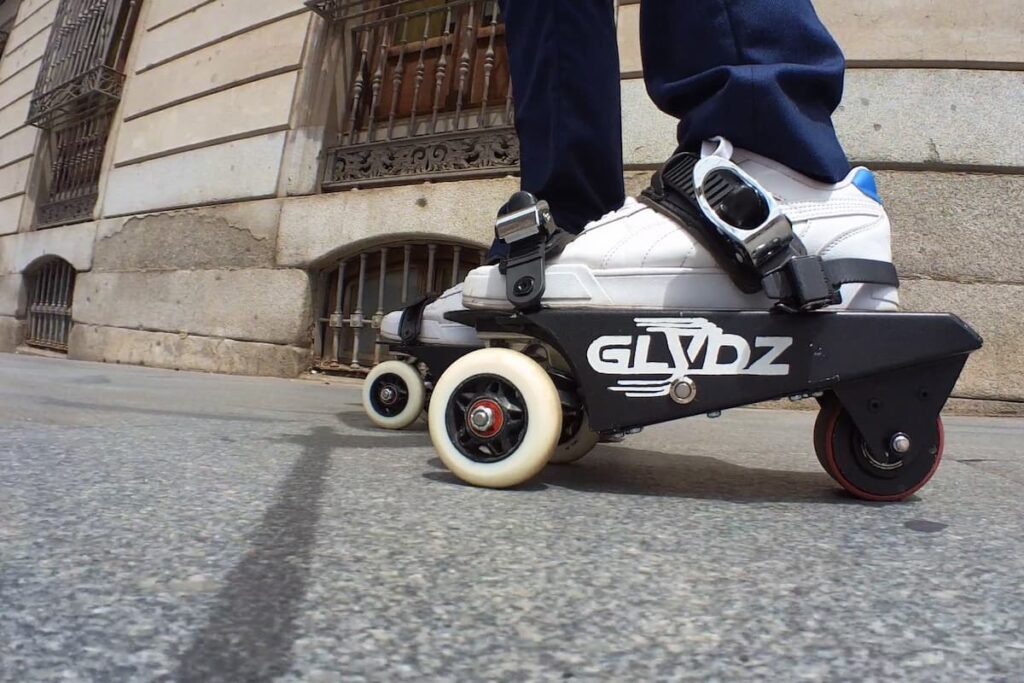
They can reach speeds up to 25 km/h, yet fold neatly into a backpack when you’re done. The product is manufactured in Madrid and tested in Paris, with Tanguy splitting his time between the two cities. “The goal was to make the smallest, smartest vehicle ever made,” he says. “Something so intuitive it disappears.”
How do you invent a product?
Building Glydz came from years of trial and error. “There’s no magic,” Tanguy says. “You draw, you imagine, you build. It doesn’t work, you build again. Every version fails differently. And that’s how you move forward.”
Tanguy created the first prototypes alone, 3D-printing parts and testing each design himself.
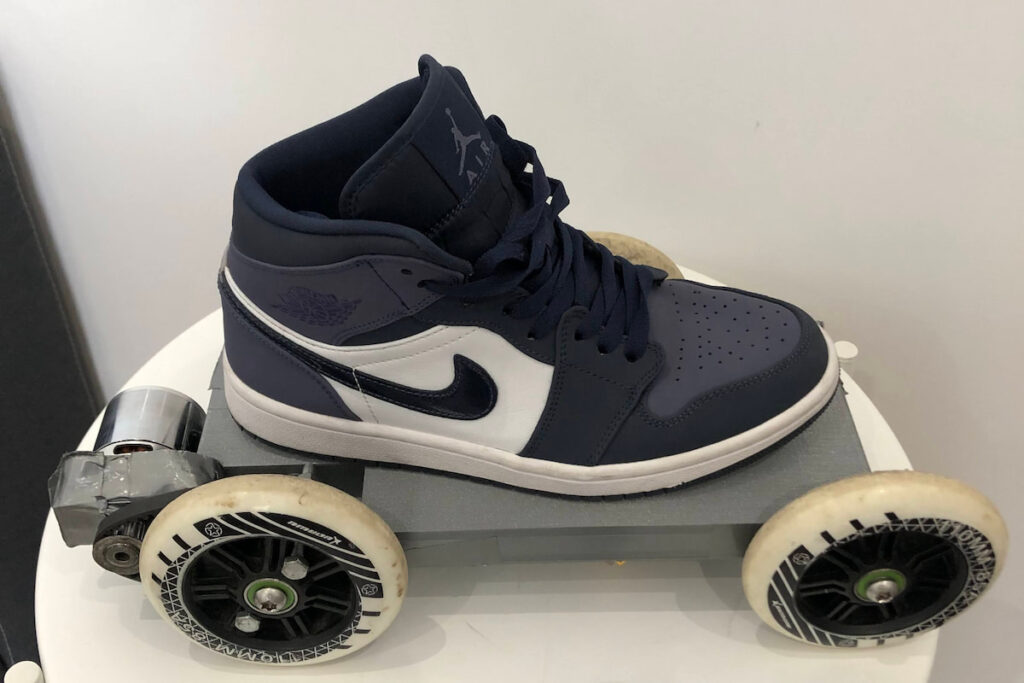
“I’m the head engineer and designer. Now we’re partnered with factories, but I invented it all from scratch.” The early versions were rough – a 3D-printed proof of concept with wide wheels. But each generation got lighter and more reliable. By version four, the system was fully functional. Version five, currently under patent review, is ready for launch.
The company is now six months away from releasing its first public model through a Kickstarter campaign. “We’ve raised €65,000 and are aiming for €150,000,” Tanguy explains. “We already have €80,000 available. It’s a good start, but fundraising is never done. If this article reaches investors, we’re ready to talk.”
What does it take to start a real business from scratch?
“You have to build something that answers a real need,” he says. “That’s the hard part. I once stopped a guy on an e-scooter and asked him why he used it. He said it was the fastest way to work. Then I asked what he didn’t like. He said it had been stolen seven times. That’s when I knew, we needed something people could take with them.”
That single insight shaped the company’s philosophy: build what people do, not what they say. “If you ask someone, ‘Would you use this?’ they’ll say yes to be polite,” Tanguy says. “But that doesn’t mean anything. Watch what they actually do, and design from there.”
He believes excellence comes from that same kind of discipline. “Entrepreneurship isn’t about having ideas,” he says. “It’s about being stubborn enough to find out why they don’t work – and keep building anyway.”
Where does the drive to invent come from?
“Techiness came first,” Tanguy laughs. “I’ve always liked understanding how things work. I like when something’s broken, because it means there’s something to learn.”
His parents played a key role. “They never stopped me from creating,” he says. “My dad helped me when I started working on skateboards with high-amperage batteries. It’s dangerous. You can burn yourself, or worse. He made sure I stayed safe.”
“We had one argument when I wanted to drop out of school to do it full-time. They told me to finish my studies. In hindsight, they were right. It gave me a stronger foundation.”
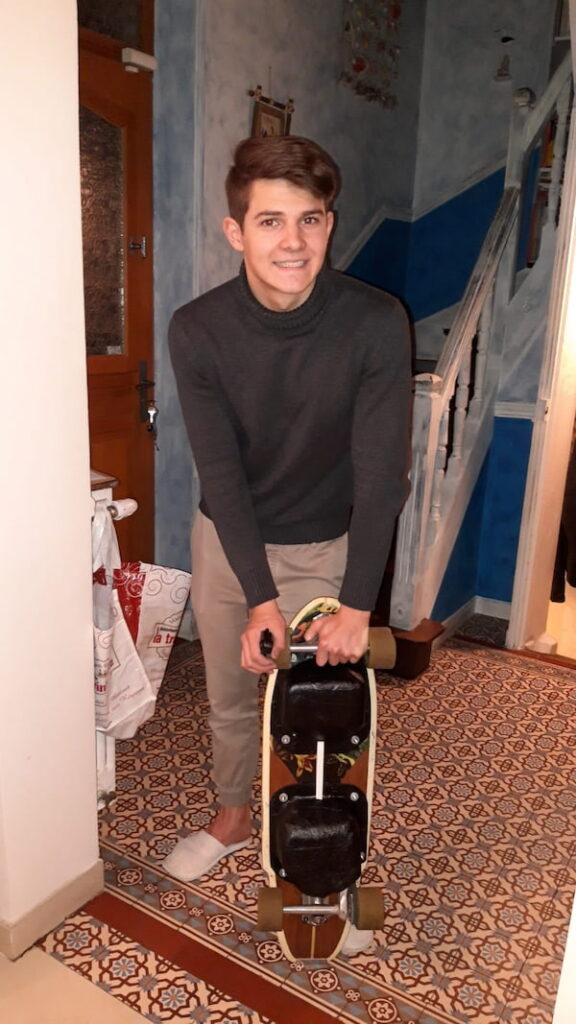
That foundation of technical curiosity, creative persistence, and the refusal to accept limits has become the backbone of his company. “I don’t see myself in any job that isn’t my own,” he admits. “I want to build things that exist because I built them. That’s how I define success.”
What’s the long-term vision for Glydz?
“The goal is simple,” Tanguy says. “A pair of Glydz in every backpack.”
Tanguy imagines a future where mobility is invisible – something you never think about, because it just works. “You leave home, throw your Glydz in your bag, and forget about them. When you need to move, you glide. When you’re done, you hop on a train or bus and pack them away. That’s freedom.”
To get there, the company plans a 2026 launch targeting 1,000 units sold on day one. After that, Tanguy wants to shift toward a leasing model. “Buying costs about €1,000 – it’s a big barrier,” he says. “But at €60 a month, it’s accessible. Like a metro pass for your feet.” The move reflects a larger shift in how people consume mobility: from ownership to access, from heavy to light, from conscious effort to effortless motion.
How does Glydz fit into global innovation trends?
Tanguy is clear-eyed about trends. “Everyone’s fighting for their piece of the AI bubble,” he says. “But 85 to 90 percent of those companies will disappear. They don’t have use cases, and they don’t make money.”
Mobility, he argues, is the opposite: it never stops being necessary. “Even in an economic downturn, people have to move. When fuel gets expensive or climate goals tighten, there’s a natural turn toward greener, lighter transport. That’s where we fit.”
Glydz needs no new infrastructure. You can ride on sidewalks, bike lanes, even take them on planes. “We’re certified for flight travel,” Tanguy adds. “It’s plug-and-play for cities.”
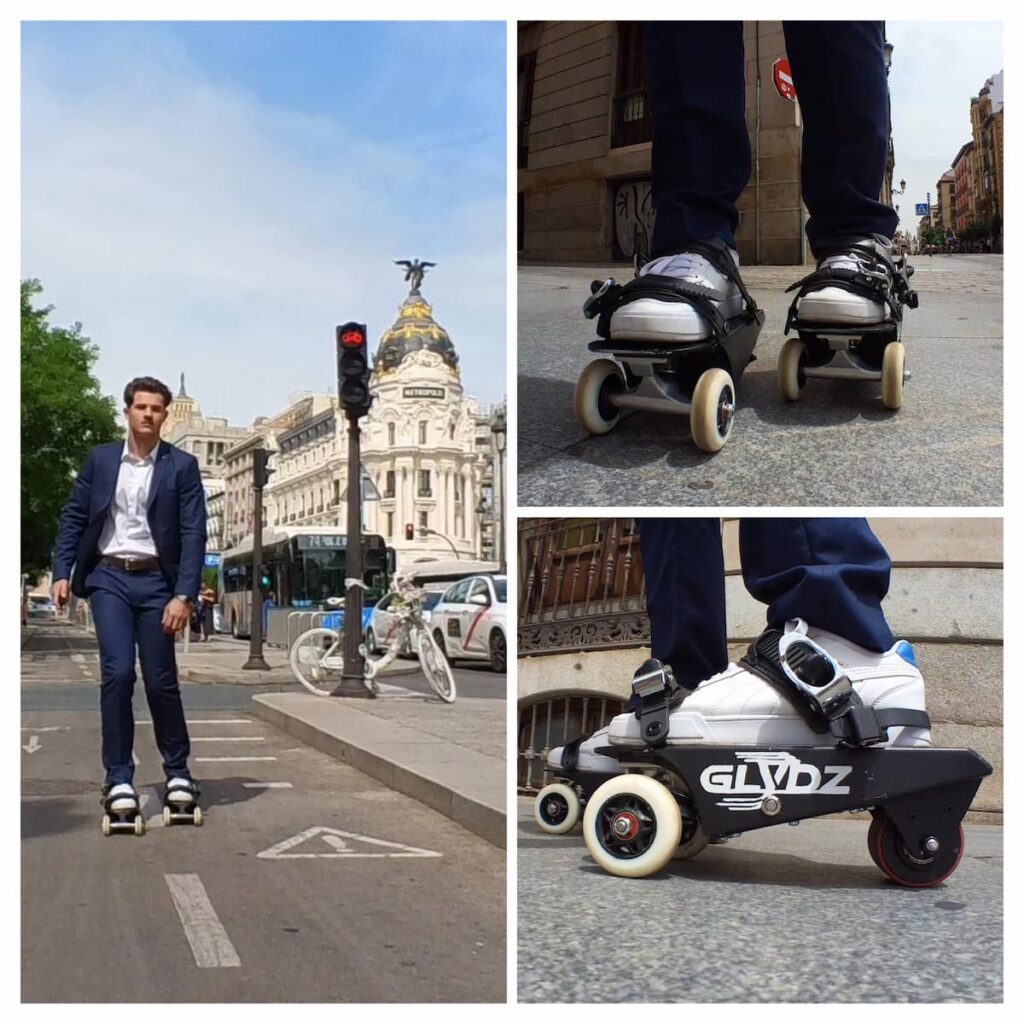
“We’re working on systems that make Glydz safer and smarter. Imagine your soles detect a wall or uneven pavement and automatically adjust. That’s AI that people would actually pay for.” Beyond that, he sees battery innovation as the real frontier. “Our engines are already at the physical limit. The next evolution will come from energy density – and when it does, we’ll be there first.”
How did the Master in Management help turn an idea into a company?
When Tanguy arrived in Madrid, he already had a rough prototype but no clear path to scaling it. “I chose IE because it’s ranked the best in Europe for entrepreneurship,” he says. “I wanted to build Glydz into something real.”
Through Venture Lab, that transformation began. “The first Venture Day, I wasn’t ready,” he recalls. “Six months later, I had a 3D-printed model. By the third lab, I had a working metal prototype I could actually ride. That’s how much you grow in one program.”
The process gave him structure, accountability, and mentors who’d built companies themselves.
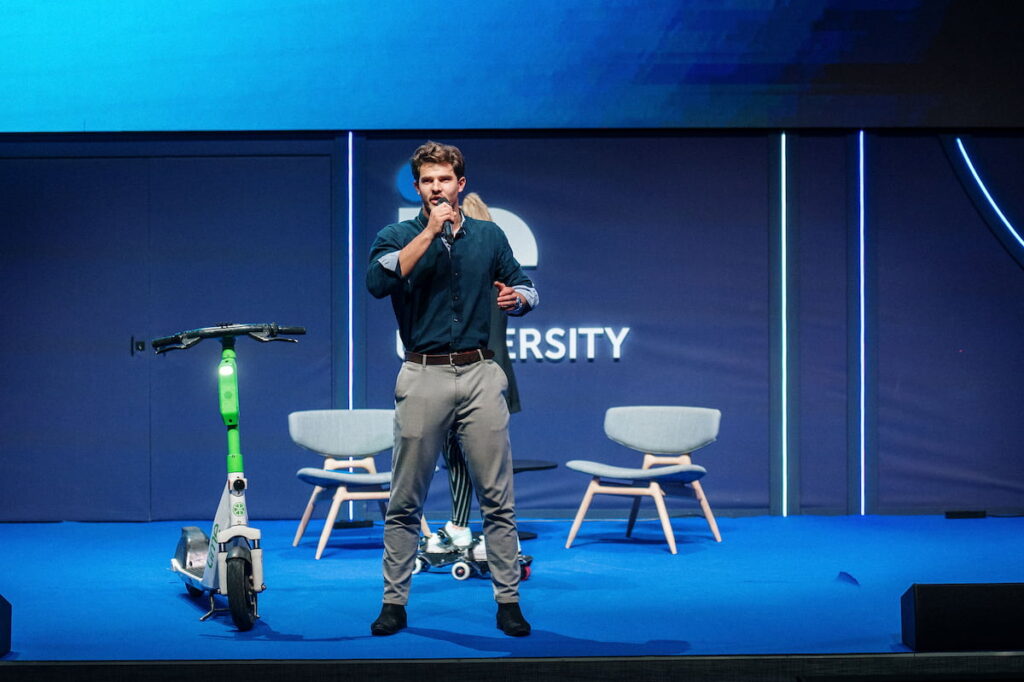
One professor in particular left a mark. “He taught AI and was phenomenal,” Tanguy says. “He showed us tools like AI-generated music the day they came out. I learned low-code and no-code development from him. Now our accounting runs on an AI system I built using those same tools.” The lesson was bigger than technology: it was about adaptation. “At IE, you’re surrounded by people doing things. Launching startups, testing ideas, building prototypes. That energy pushes you forward.”
What can aspiring founders learn from Tanguy’s story?
First, curiosity is capital. “I didn’t plan to be an entrepreneur,” says Tanguy. “I just wanted to understand how things work, and fix them when they didn’t.”
Second, failure is research. Every version of Glydz began as a problem that wasn’t solved yet. “You build, it fails, you build again. That’s how you get to excellence.”
And third, vision needs courage. “People told me our idea was physically impossible,” he says. “Three years later, we proved them wrong. The end goal is freedom. Freedom to move, freedom to create, freedom to live faster and lighter. That’s what Glydz is all about.”
Understand entrepreneurship with the Master in Management
Build your skills with IE Business School.

Benjamin is the editor of Uncover IE. His writing is featured in the LAMDA Verse and Prose Anthology Vol. 19, The Primer and Moonflake Press. Benjamin provided translation for “FalseStuff: La Muerte de las Musas”, winner of Best Theatre Show at the Max Awards 2024.
Benjamin was shortlisted for the Bristol Old Vic Open Sessions 2016 and the Alpine Fellowship Writing Prize 2023.

